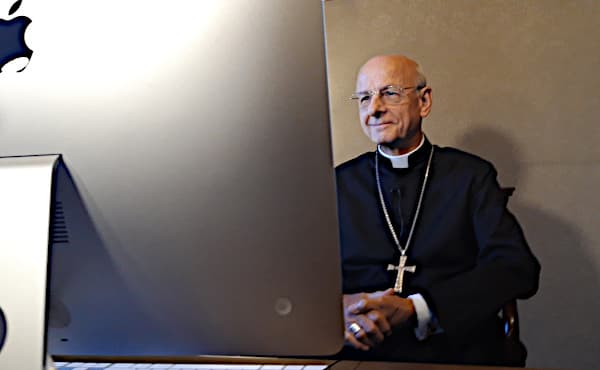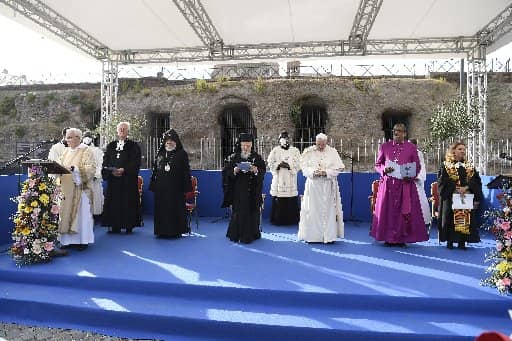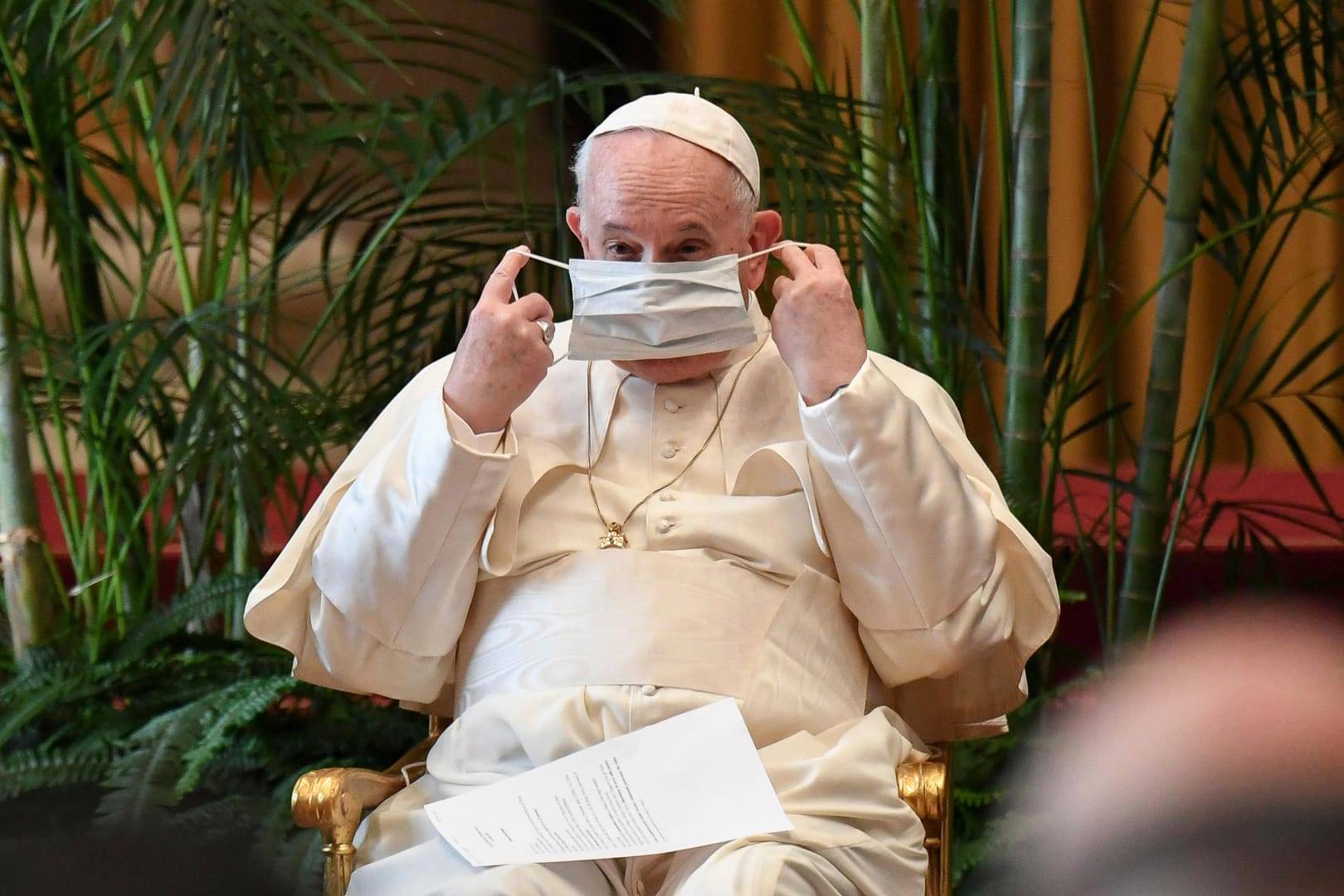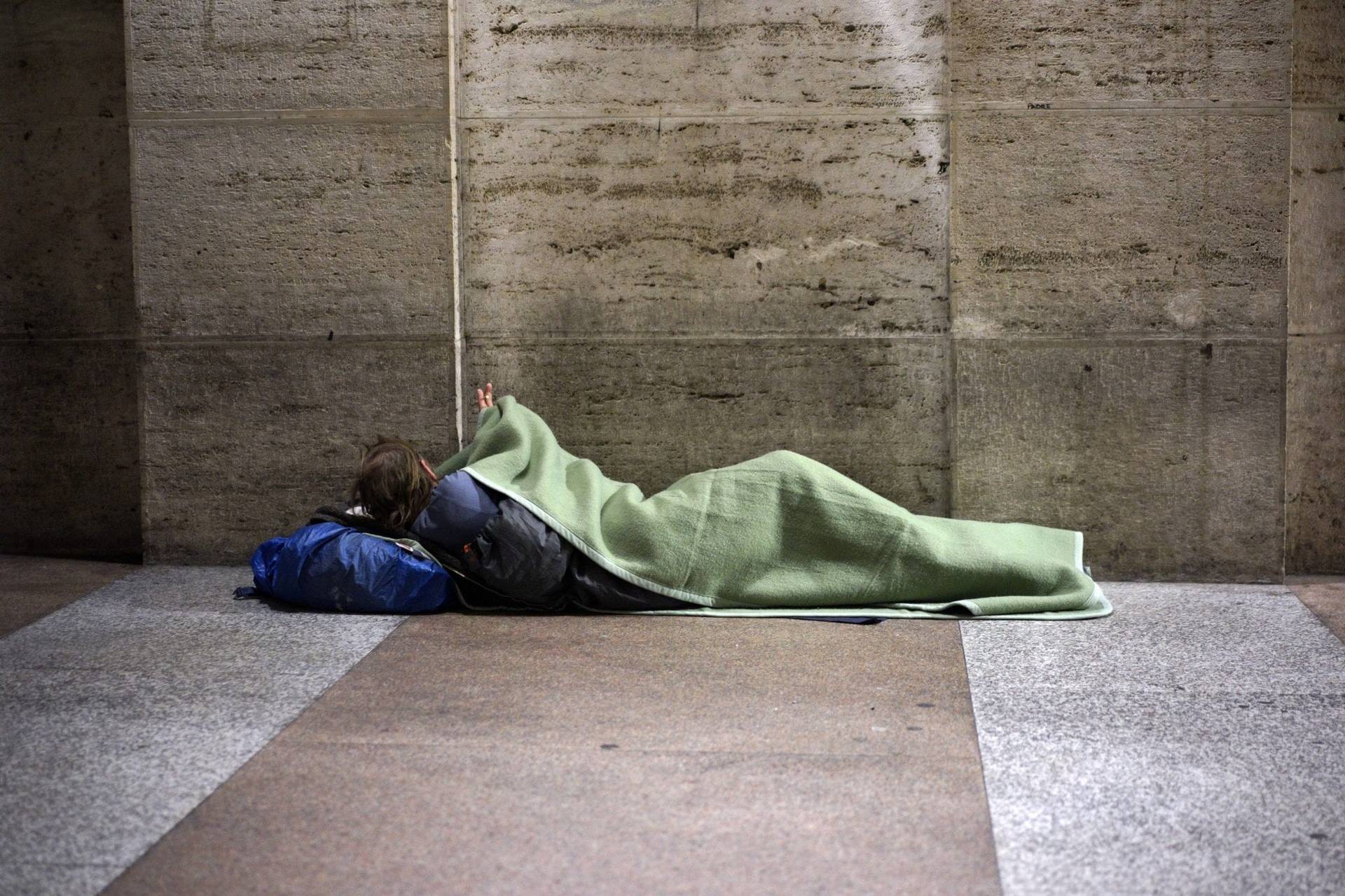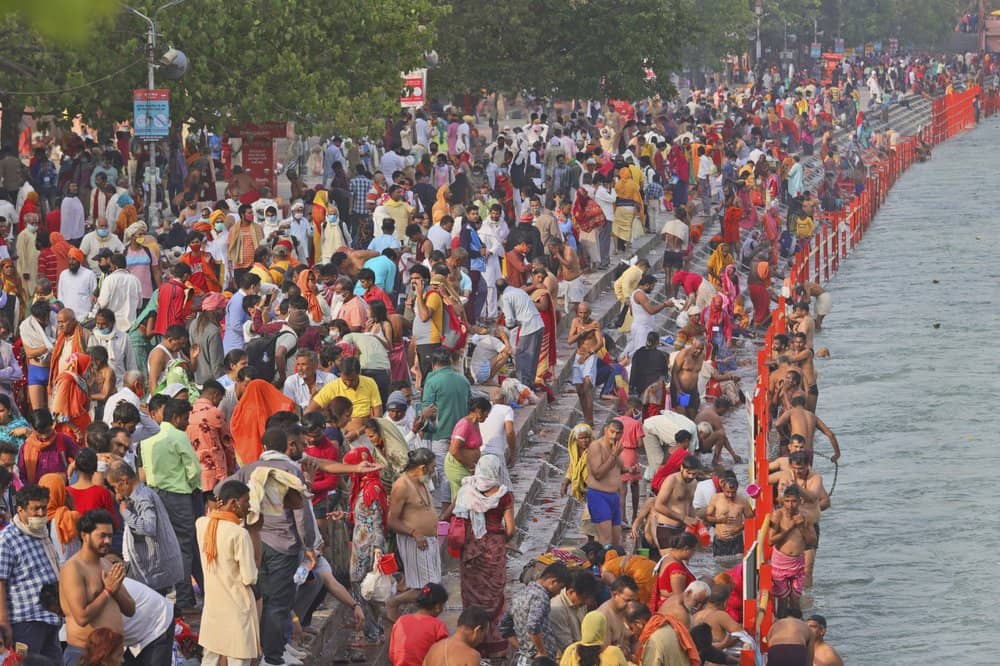ROSARIO, Argentina – If the heroes of the coronavirus pandemic are the doctors and nurses on the front lines, then the head of Opus Dei, a “personal prelature” in the Catholic Church, took a graduate seminar in heroism with a Zoom session Friday with health care workers engaged in battling a disease which, so far, has claimed over a half-million lives.
Spanish neurologist Maria Sanchez-Carpintero works at the Infanta Elena University Hospital in Madrid. She said during the session that through the worst of the crisis, she saw “the capacity to give it all that the human person has.”
“For many of those patients, we were their families: we gave them words of comfort; dried their tears; relayed on to them messages from their loved ones,” she said, to the point, that many doctors and nurses were present when patients had their last breath – “holding their hands, giving them the chance to talk to their families or making the sign of the Cross in their foreheads.”
Ito Diejomaoh, director of the Niger Foundation Hospital in Enugu, Nigeria, explained that “for the moment, the highest infection rate is occurring among doctors and nurses and many are afraid.”
He commented that the hospital’s emergency department was under pressure and the temptation had sometimes arisen to close it: “However, the staff’s response was unanimous: we will never leave patients alone,” Diejomaoh said.
Those were among the glimpses into life on the front lines offered by the online session with Spanish Monsignor Fernando Ocáriz Braña on Friday.
Those who spoke, work in Opus Dei, ran or sponsored health centers around the world, and they gathered under the scope of the “Harambee Covid-19 Conversation: Christian responses to the pandemic,” promoted by the NGO Harambee that works in Sub-Saharan Africa with the goal of making education accessible to all and to improve the educational formation of the people.
Professionals from the Democratic Republic of the Congo, Argentina, Ivory Coast, Italy, Nigeria and Spain spoke to Ocariz.
Dr. Nicole Muyulu, a training nurse and teacher at the Higher Institute of Nursing Sciences in Kinshasa, the Democratic Republic of the Congo, said that COVID-19 is a very real and present problem in the Congo, but “we will learn to live with it, just as we live with malaria and so many other diseases.”
“Occasionally, there is and there will be crisis,” Muyulu said. “What we want to convey to our students and to all nurses is that they should never abandon the sick, because the service they provide is essential for society.”
Standing by the neediest, she said, is a “key factor in a Christian-inspired educational center.”
The number of confirmed cases in the African country is relatively low, with only 7,379 cases, and 182 deaths. However, much of the country is under lockdown, despite the fact that millions of Congolese rely on the informal economy to survive and live life on the margins with little to no social safety net.
In contrast to America or Europe, coronavirus is not the only disease with pandemic proportions as measles and Ebola are very much a reality in DRC. In fact, Ebola has killed over 20,000 people in the past two years.
Felice Agrò serves as the director of the COVID-19 unity of the Bio-Medical University campus that Opus Dei runs in Rome, Italy. He said that many patients were discouraged and faced their prognosis with pessimism. This led the staff of the unit to work not only on the patients’ physical recovery but also on emotional accompaniment.
“We learned from one patient that her favorite dish was Amatriciana pasta, and in the kitchen they prepared a good plate for her,” he said. “Personnel came together to buy new reading glasses for a patient because he had lost them… They were details, but most of us found much comfort in them.”
When it comes to fighting coronavirus, he said, medical knowledge is key, but prayer is also important.
Hailing from Argentina, Rafael Aragon is the director of the COVID-19 Austral Solidarity Hospital, set up in the campus of the Opus Dei university in Buenos Aires. In a couple of months, they raised funds needed to set up a hospital with over 60 beds for coronavirus patients with no insurance, including 20 ICU beds.
There are over 1,000 volunteers including doctors, nurses, cleaning staff and students from the medicine faculty of Austral working daily to keep the structure going. Austral is ranked as the best private university in the country, and the opening of the charitable hospital draw the attention of President Alberto Fernandez, who visited the facilities back in June.
“This initiative is a sign that Argentina can be better, with all of us rowing in the same direction,” Fernandez said at the time. “God would not forgive us if there are differences in an emergency like the one we are facing where the only concern we have is to save lives.
It’s worth noting that the ICU beds in the charitable hospitals are the same number of beds in the private one, that is in the same campus.
“This action was not done to make it appear that they care about the poor, they really did it looking after those who have the least,” Fernandez said. “We can make a better country and this is the evidence. As Pope Francis says, at this time and in this world no one is saved alone, we all need each other to be better.”
Aragon noted that patients tended for in both facilities have access to a priest, if they wish to see one, and can receive the sacraments: “We will never leave patients alone,” he said.
This accompanying patients who couldn’t have their relatives close, she said, goes beyond the “essential care” doctors and nurses are called to provide, but for thousands who lost their lives, it made a difference.
Dr. Rose Segla is a gynecologist at the Walé Medical-Social Center, in Yamoussoukro, in the Ivory Coast. She too, spoke with Ocariz, where she acknowledged that her contact with COVID patients has been limited because most COVID-19 cases are in Abidjan, in the southern region of the country. For going in or out of this city, she said, a person needs an authorization.
However, most of those who go to the center have lost their jobs and income due to the pandemic.
“In our country medical care is expensive, and there are endemic diseases such as malaria, which must continue to be treated,” she said. “Walé and other institutions of Christian inspiration try to help patients by reducing the costs of consultations, tests and medicines. ”
The doctor added: “We will continue to take all possible precautions, but we want to show off the approach that St. Josemaría [Escriva, founder of Opus Dei], who inspired the building of this hospital, left us: Putting the person at the center.”
In his parting remarks to the health care workers, Ocariz said that one can “learn a lot” by listening to the experiences of those who’ve been in the frontline.
“It shows that you have sought the bodily health of the sick, which is very important, but you also brought dignity to so many people, by transmitting the love of God to many sick and their relatives,” he said.
“While you were talking,” he added, “Pope Francis’ extraordinary moment of prayer for the pandemic on March 27 came to my mind. On that occasion, he reminded us that we were all in the same boat, fragile but important and necessary, in need of comforting each other.”
Follow Inés San Martín on Twitter: @inesanma
